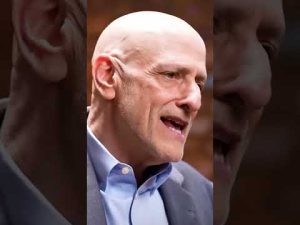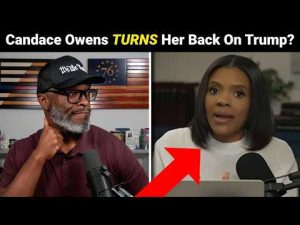Sunny Hostin from “The View” recently claimed that former President Donald Trump wants to eliminate the Department of Education to keep Americans uneducated and create a “permanent underclass” of cheap labor. She argued that educated workers cost more, so Republicans aim to reduce access to quality education to control voters. Her comments sparked backlash from conservatives who see this as another example of liberal elitism.
Hostin suggested Trump’s plan, inspired by Project 2025, isn’t about saving taxpayer money but about suppressing critical thinking to ensure a loyal Republican base. She claimed uneducated voters are more likely to support GOP policies, citing education gaps in voting patterns. Conservatives reject this as a conspiracy theory, arguing it dismisses the intelligence of millions of Americans who value freedom over government-driven curricula.
Linda McMahon, Trump’s Education Secretary pick, countered that the administration’s goal is to return power to states and local communities. She emphasized that parents and teachers—not Washington bureaucrats—should decide what’s best for students. Conservatives agree, stressing that federal overreach has worsened education outcomes, pointing to failing schools in cities like Baltimore.
Critics called Hostin’s remarks hypocritical, noting that many blue states underperform academically despite heavy federal involvement. They argue school choice and competition—not centralized control—would uplift students. The conservative vision prioritizes empowering families to opt out of failing schools, rather than trapping them in systems that promote radical ideologies.
The clash highlights a deeper divide: liberals trust government to shape society, while conservatives trust individuals and local governance. Hostin’s theory reflects a condescending view of everyday Americans, implying they’re too “uneducated” to think for themselves. This aligns with a pattern of left-wing figures dismissing dissent as ignorance rather than engaging in honest debate.
Trump’s push to dismantle the Department of Education resonates with voters tired of woke policies replacing basics like math and reading. Stories of schools prioritizing gender theory over literacy have fueled parent-led movements demanding accountability. Conservatives see this as a fight to reclaim education from activists who prioritize indoctrination over skills.
The left’s panic over losing education control reveals their fear of losing cultural influence. By labeling opponents as “uneducated,” they avoid addressing why millions reject progressive policies. Conservatives believe thriving communities come from freedom, not federal mandates—and that’s a message resonating at the ballot box.
Ultimately, this debate isn’t just about schools. It’s about who gets to decide the future: distant bureaucrats or parents and local leaders. The conservative answer is clear: trust the people, not the politicians.







